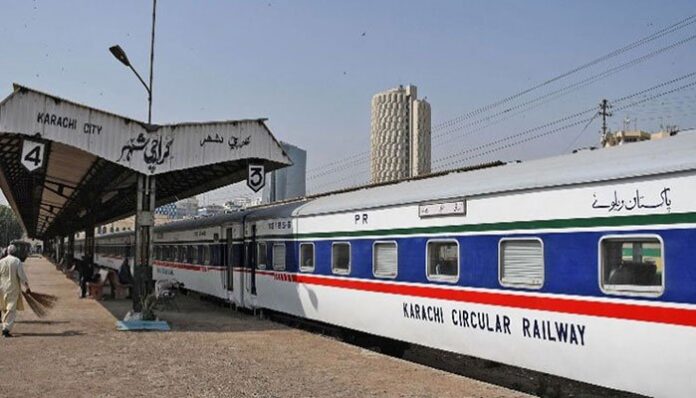KARACHI: The Central Development Working Party (CDWP) on Thursday cleared the Karachi Circular Railway (KCR) as a modern urban railway project worth Rs273.071 billion.
The project was approved in a CDWP meeting chaired by Deputy Chairman Planning Commission, Dr Jahanzeb Khan. Officials of railways, representatives of the provincial government, and other relevant stakeholders were in attendance. During the meeting, the deputy chairman noted that the implementation of the project is a challenge. “We need to invest in Railways as the federal government is committed to support such public interest projects,” he said.
Following the clearance by CDWP, the project was referred to the Executive Committee of the National Economic Council (ECNEC) for further consideration.
While briefing the committee, the secretary railway apprised that under the project, the 43-kilometre dual track urban rail mass transit system will be constructed over a period of three years on Public Private Partnership (PPP) basis. It was declared that the main objective of the project is to provide reliable, safe, and eco-friendly public transport to the metropolitan city of Karachi.
He informed that the project is expected to serve a daily ridership of 457,000 passengers, a figure that is expected to soar to one million by the end of its 33-years concession period. Under the plan, 30 stations will be constructed along a corridor that covers Karachi’s most densely populated areas. The railway project will deploy the use of electric trains and will be operational round the week.
As per the route alignment, KCR will commence from the existing Karachi City Station, move along the main line of PR on Drigh Road Station, go across Shahrah-e- Faisal, and enter into Gulistan-e-Johar and then Gulshan-e- Iqbal. It will then pass through the older residential areas of North Nazimabad, Nazimabad leading to SITE area, and further to the Port, before looping back to Karachi City Station.
The project is part of the overall scheme for improvement of transport infrastructure in Karachi, which includes the road network, provision of public transport, mass transit facilities, and traffic.
The development of KCR as a modern urban mass transit system will add to the meagre public transport facilities in Karachi which have fallen short of meeting the demand that has multiplied over the last few decades. Non-availability of modern mass transit facilities and decline in supply of large buses have so far only added to the worries of the city’s growing population.
The KCR was fully operational from 1964 to 1994. Its conditions gradually became dilapidated until it was completely shut down in 1999 by which time the city had seemed to have massively outgrown the railway’s reach and capacity. Since then there have been many attempts at reviving the KCR with plans being drawn and studies being conducted since as early 2003. For one bureaucratic reason or the other there have been delays in implementation. In 2013, the Japan International Cooperation Agency (JICA) was taken on board to fund and finance the KCR revival. However, this did not work out and later the project was included under China-Pakistan Economic Corridor (CPEC).
In November 2020, the KCR was re-inaugurated by Minister of Railways, Sheikh Rasheed and now awaits refurbishment under the recent revival plans announced by the government.




